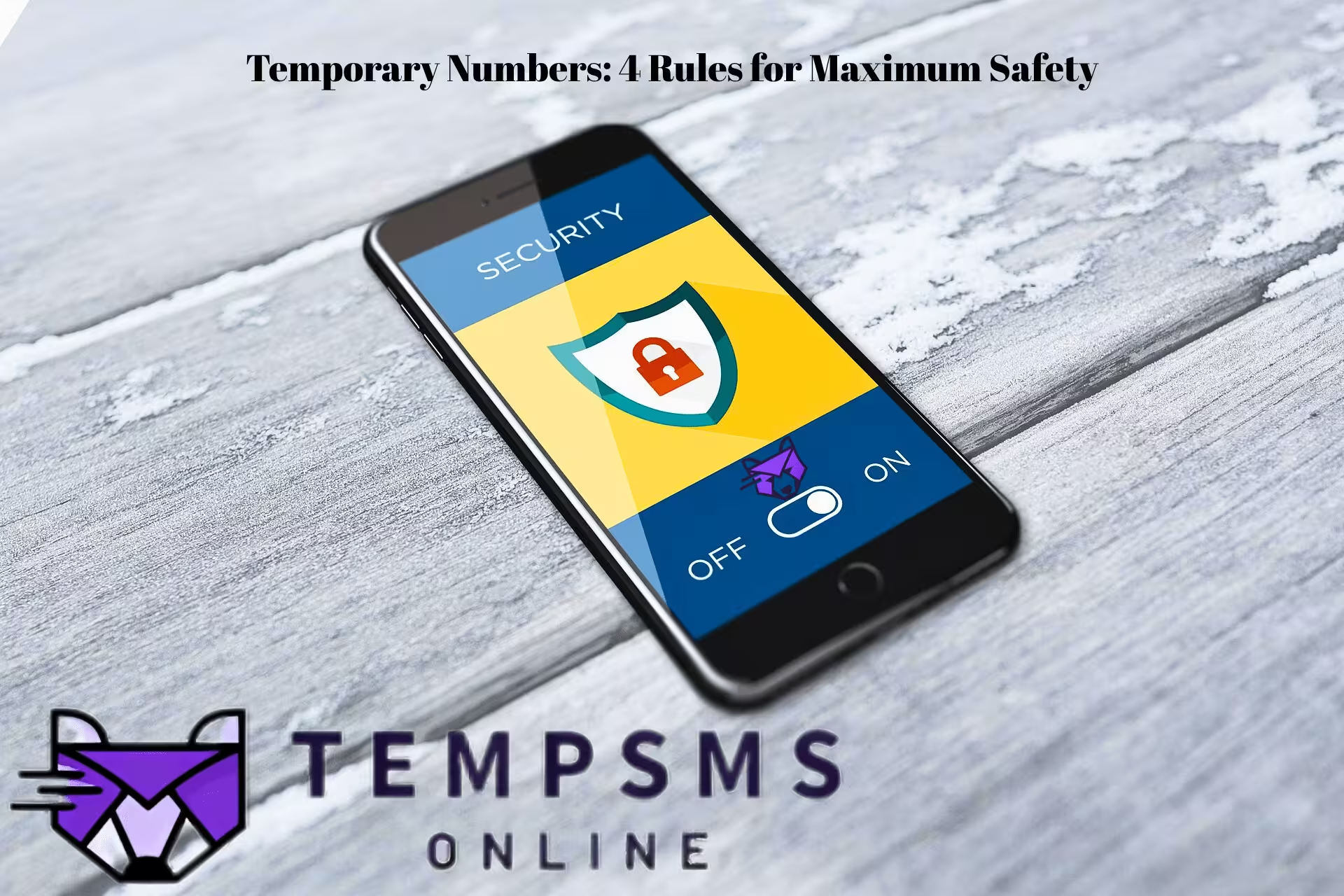In an age where privacy is paramount, understanding the safe use of temporary numbers is crucial. Many users wonder, "Are temp numbers safe?" While they offer a layer of anonymity, there are inherent risks associated with these disposable services. To protect yourself, it's essential to implement smart practices. This guide outlines four vital rules to ensure maximum safety when utilizing temporary numbers, covering everything from anonymous SMS verification to securing your accounts against potential threats. By following these guidelines, you can navigate the world of virtual numbers with confidence while minimizing privacy concerns.
NEVER use it for banking or finance
When it comes to temp numbers, it's crucial to prioritize your financial security. Adhering to the following guidelines can help mitigate the risks of temporary phone numbers in sensitive situations:
- Avoid Financial Transactions: Never use temporary numbers for banking apps, online purchases, or any financial communications.
- Anonymous SMS Verification Safety: Many banks require a secure identity verification process, which temp numbers fail to provide.
- Long-Term Privacy Concerns: Using a disposable number for finance increases the chances of fraud, as they can be reclaimed by others.
By steering clear of using temp numbers for banking, you can ensure your financial identity remains secure and minimize potential risks.
Assume that every incoming message is public
When using temporary numbers, it's crucial to remember that every incoming message may not be private. Here’s why:
- No Encryption: Many services do not provide encryption, making your texts vulnerable.
- Public Access: Temporary numbers can be accessed by multiple users, raising risks of privacy breaches.
- Data Collection: Companies may harvest data from messages sent to these numbers, leading to potential leaks.
To enhance anonymous SMS verification safety, consider these tips:
- Avoid Sensitive Information: Never share personal or financial details in messages received.
- Use for Short-term Needs: Limit the usage of temp numbers to single-use verifications.
- Be Cautious with Responses: Think twice before responding to any incoming texts.
By treating each message as potentially public, you safeguard against disposable number privacy concerns.
Secure the account you create immediately with a strong password and email.
When utilizing temporary numbers, it’s crucial to safeguard your account. Follow these steps to ensure your information remains secure:
- Use a strong password: Combine uppercase, lowercase, numbers, and symbols to create a robust password.
- Employ a unique email address: Consider setting up a dedicated email solely for this purpose, minimizing exposure to your primary accounts.
- Enable two-factor authentication (2FA): This adds an extra layer of protection, particularly when using disposable number services.
By taking these measures, you can mitigate the risks of temporary phone numbers and enhance your anonymous SMS verification safety. Prioritize your security to enjoy the benefits of virtual numbers without compromising your privacy.
Use the Number for One-Time Verifications, Not as a Long-Term Identity
When dealing with temp numbers, it’s crucial to utilize them wisely. Here’s how to ensure anonymous SMS verification safety:
- Limit Usage: Use these disposable numbers solely for one-time verifications. This helps manage risks of temporary phone numbers effectively.
- Avoid Long-Term Registration: Don’t use temp numbers as a primary contact, avoiding potential privacy concerns.
- Reset Regularly: If you must use a temporary number long-term, routinely change it to enhance security.
Remember, while these numbers offer convenience, using virtual numbers safely requires mindfulness. By treating them as short-term resources, you maintain your privacy and mitigate associated risks.
Frequently Asked Questions
Are temp numbers safe to use for online activities?
Yes, temporary numbers can be safe when used correctly. They are designed to provide an extra layer of privacy and security during online transactions, sign-ups, or engagements, especially in situations where you wish to protect your personal number from potential spam or unwanted contacts. However, users must ensure they select reputable providers to minimize risks associated with data breaches or misuse.
What are the risks associated with using temporary phone numbers?
The risks of using temporary phone numbers include possible exposure through the provider, as some services may not have strict security measures in place, leading to data leaks. Additionally, there is a chance that the number may be reused by third parties, which could result in unwarranted contacts or privacy violations. Users must weigh these risks against the benefits and opt for services that prioritize user security.
How can I use virtual numbers safely to ensure my privacy?
To use virtual numbers safely, always opt for trusted providers that implement strong encryption and privacy policies. Avoid sharing your temporary number for sensitive transactions, ensure that the service deletes your data after use, and consider using these numbers solely for temporary, non-critical engagements. Furthermore, be cautious about the information you provide during verification processes, as it can compromise your anonymity.
